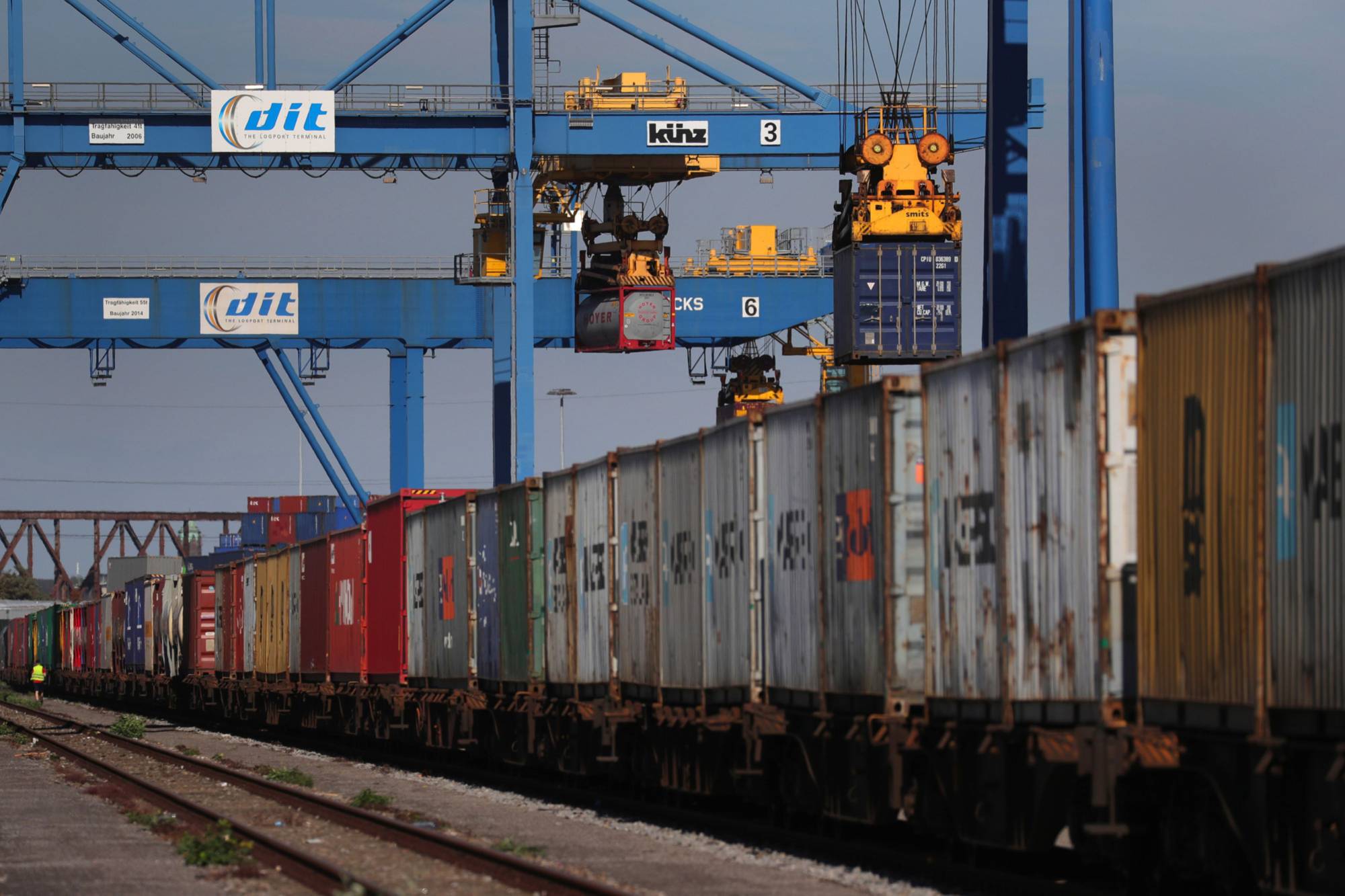More than a million containers that were set to ride nearly 10,000 km of railway linking Western Europe to Eastern China via Russia are now having to find new routes by sea, adding to costs and threatening to worsen global supply chain chaos.
With Moscow’s war raging in Ukraine, exporters and logistics firms transporting auto parts, cars, laptops and smartphones are now looking to avoid land routes that pass through Russia or the combat zone. Security risks and payment hurdles stemming from sanctions are mounting, as is wariness that customers in Europe could boycott products that traveled via Russian rail.
Kuehne+Nagel International AG, one of Europe’s largest freight forwarders, is already rejecting rail cargo from China to Europe, according to Marcus Balzereit, a senior vice president for Asia Pacific at the Switzerland-based company.



